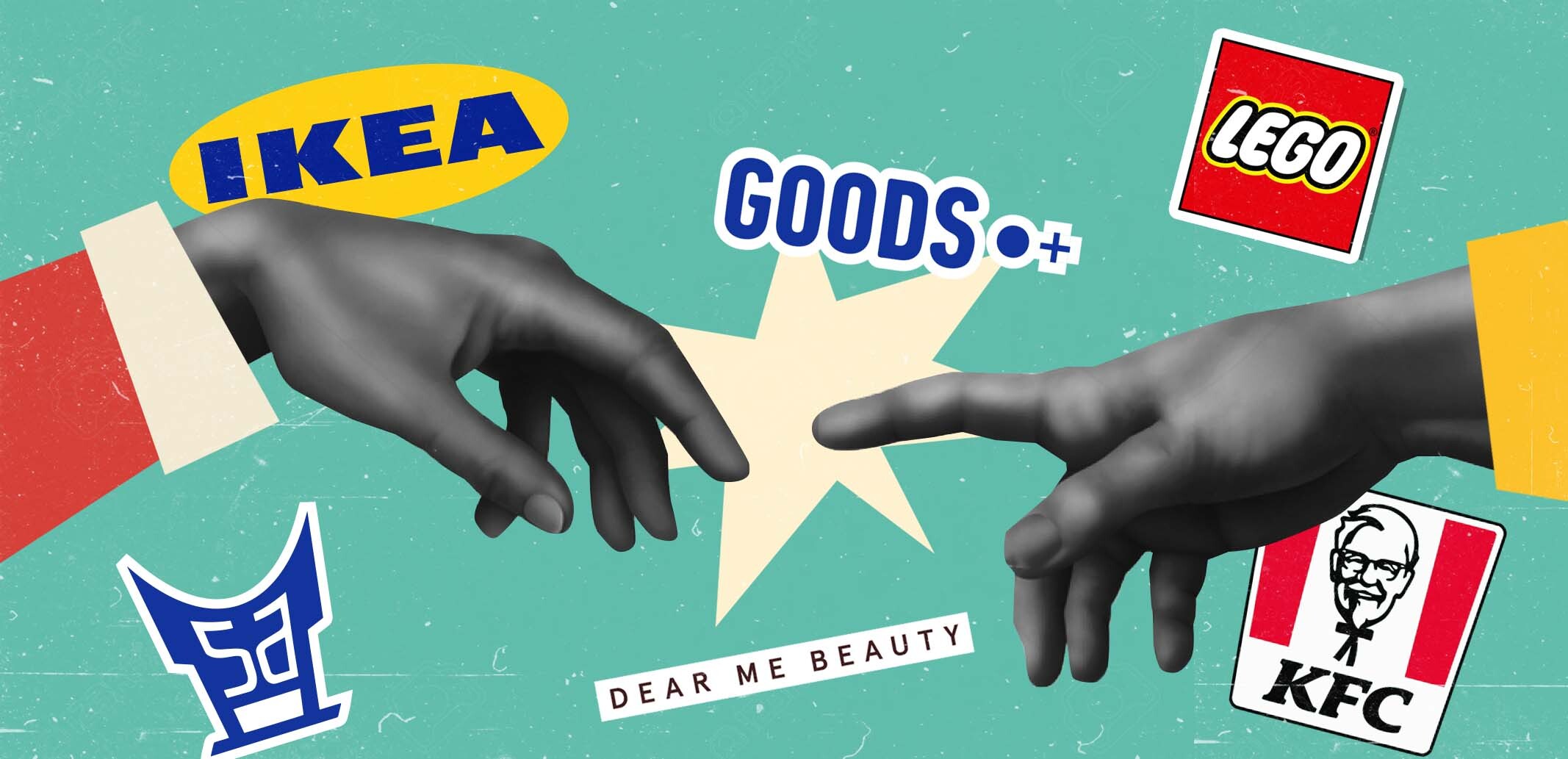
Cross Branding
10 June 24
Back in 2022, we discussed co-branding, where brands with the same niche provide a new product or experience for the customer. Today, we are going to delve into another perspective of cross branding: a collaboration between brands with opposite niches. From lipstick to coffee, a pair of shoes to ice cream, these collaborations depict a unique way to develop your brand, a strategy that is highly worthwhile and worth considering.
Cross-branding can be a powerful tool for creating new products that address customers' unique demands. By partnering with various food brands, ranging from snacks (Yupi, Nissin), food flavoring (Sasa), to fast-food restaurants (KFC), Dear Me Beauty has not only increased brand awareness but also fostered stronger customer engagement through these innovative marketing strategies. Their latest collaboration with KFC has raised an enormous hype, leading the brand to produce not just one product (like eyeshadow inspired by 11 secret legendary spices), but a full range of cosmetics. The playful collaboration has successfully targeted a younger audience, but on top of that, their commitment to providing high-quality makeup for all audiences remains constant. This focus on value is crucial for any brand considering a collaboration, as customers ultimately seek products that align with their needs and preferences.
Another unique collaboration promoting local pride was a capsule clothing line launched by retail store Goods Dept. in partnership with Tokopedia. The campaign called #LocalFirst aimed to invite Indonesian youths to embrace and be proud to wear local brands. The collection featured various collaborators, including artists, musicians, and established local brands like Indomie and RM Padang Sederhana. The T-shirts and shirts drew inspiration from these brands' iconic elements, making it a unique point to attract customers. This clever fusion of fashion and food resulted in a collection that potentially inspired local pride. It showcased a unique and compelling offering, unlike typical clothing lines. By featuring iconic elements from these beloved local brands, the collection targeted a diverse customer group of young Indonesians who could connect with these cultural references. This approach not only sets the Goods Dept. apart but also created a more meaningful and tailored experience for its target audience.
While many collaborations focus on creating unique products, can collaborations prioritize functionality? The partnership between Lego and IKEA, known as Bygglek, demonstrates the potential of cross-branding to merge play and functionality for both parents and children. Bygglek offers stackable plastic boxes with integrated Lego studs on their lids, encouraging creative storage solutions. For parents, Bygglek streamlines toy organization while fostering quality time and strengthening family bonds through shared assembly activities. Moreover, this collaboration allows Lego and IKEA to combine their resources and marketing efforts, extending their customer reach. This innovative marketing approach enables both brands to tap into new audiences and increase brand visibility without the need for large-scale campaigns.
In exploring the landscape of cross-branding, it's clear that collaborations between brands of differing niches can deliver remarkable results. Here at Milestone, the leading brand consultant in Indonesia, we understand the power of collaboration and are eager to assist your brand embark on its own journey of cross-branding excellence. Reach out to us today and let's start collaborating!